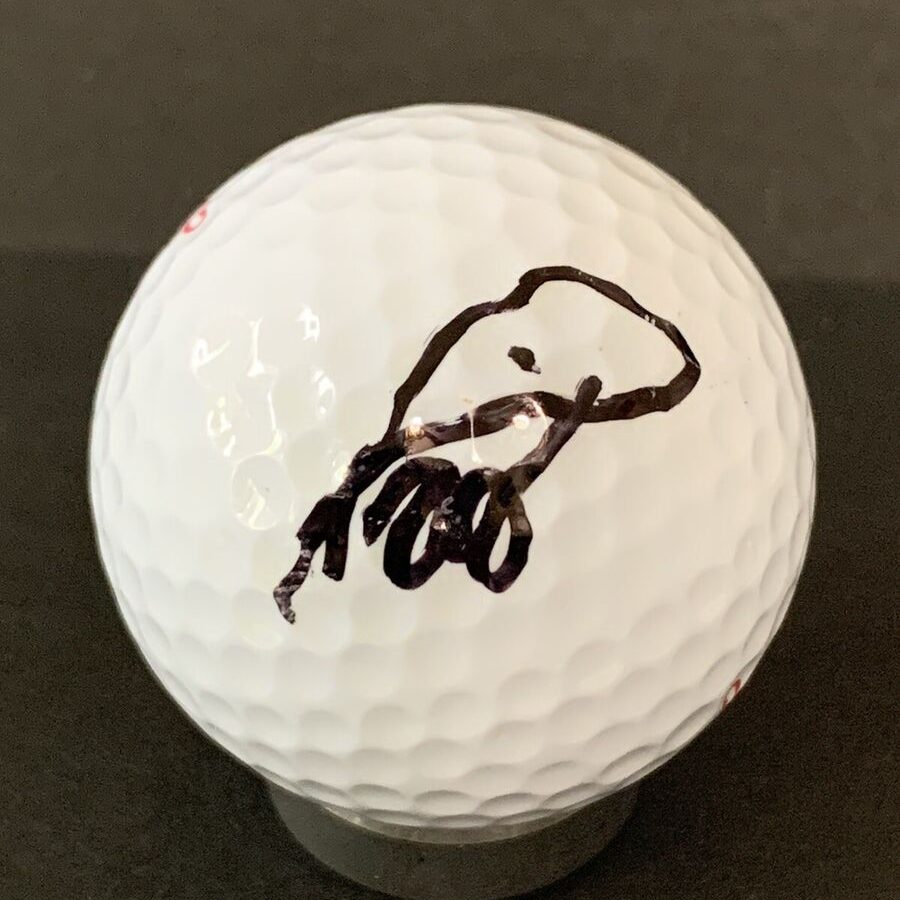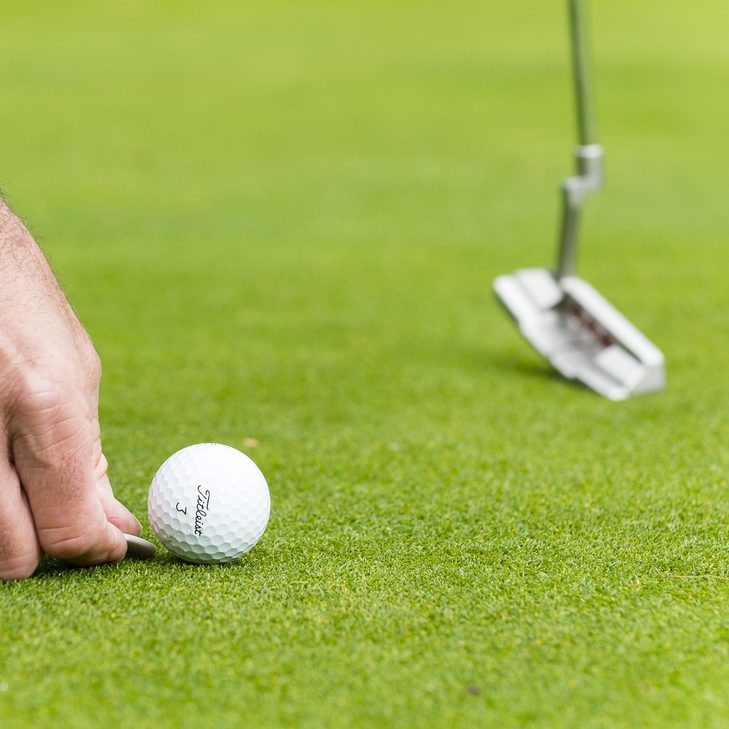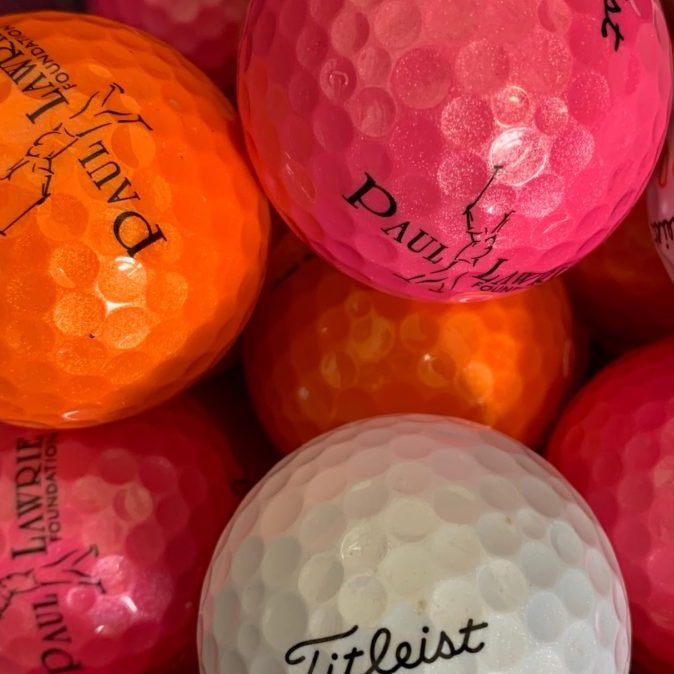The Evolution of Golf Balls and Their Impact on Playing Style
The history of golf balls is a tale of innovation and style. Over centuries, golf balls have evolved from simple wooden spheres to advanced, high-tech marvels. This evolution has deeply influenced how golfers approach the game. Let’s explore how this transformation has affected playing style.
In the early days, golf balls were made from wood. They were hard to control and didn’t fly far. This demanded a powerful and often ungainly swing from golfers. The introduction of ‘featheries’, leather pouches stuffed with feathers, changed the game. These balls flew further, but were expensive and fragile, making a delicate playing style essential.
Core Technologies Defining Today’s Golf Balls
The advances in golf ball technology have significantly altered golf equipment. Today’s golf ball pauls harness a range of core technologies, each enhancing the ball’s performance. Let’s delve into the key technologies that define modern golf balls and their impact on the game.
Material Innovations
The materials used in golf balls have come a long way. Urethane covers have replaced the older balata, leading to increased durability and control. Beneath the cover, multi-layer designs offer players the ability to fine-tune their shots, catering to various swing speeds and styles. The combination of soft inner layers with firmer outer layers allows for optimized energy transfer from the club to the ball.
Aerodynamic Design
Golf ball aerodynamics are crucial for flight stability and distance. Advanced computer modeling shapes golf ball pauls for reduced drag and optimal lift. Dimples are no longer just random indentations; their size, shape, and patterns are precision engineered. These modifications manipulate airflow, helping the ball to cut through the air efficiently and maintain trajectory under diverse conditions.

Physics Behind the Golf Ball Flight
The flight of a golf ball may seem simple. Yet, it involves complex physics. When a golfer hits a ball, several factors come into play. These include the ball’s velocity, the angle of impact, and the spin rate. Each affects the ball’s trajectory and distance.
First, a concept called the Magnus effect explains the ball’s curved path. This effect occurs when spinning the ball creates pressure differences. Air flows differently around the ball due to its rotation. This can make the ball move in a curve, rather than a straight line.
Analyzing the Role of Dimples in Golf Ball Aerodynamics
The surface of a golf ball is not smooth. It has dimples. These dimples play a crucial part in how the ball flies. They affect the aerodynamics of the ball in significant ways. Here’s how they work.
Dimples create a thin layer of air around the ball. This is known as the boundary layer. The air sticks to the ball’s surface. This sticking reduces drag, which is the force that slows the ball down. Less drag means the ball can fly further.
The dimples also change the air pressure around the ball. The front of the ball has high pressure. The back has low pressure. This difference in pressure creates lift. Lift helps the ball stay in the air longer. It adds to the distance the ball can travel.
Golf ball pauls have different dimple designs. Some have more dimples, some have fewer. The size and shape of the dimples also vary. This is because different designs work better for different playing conditions and swing speeds.
Manufacturers test dimple designs extensively. They use wind tunnels and computer simulations. They want to find the best design that offers control and distance. Golf players can choose a golf ball paul with the optimal dimple design for their style of play.
In summary, dimples are key to a golf ball’s performance. They help reduce drag and create lift. This leads to longer, more stable flights. A ball with well-designed dimples can make a big difference to a golfer’s game.

Comparing Golf Ball Brands: What Sets Pauls Apart
When it comes to golf ball brands, Pauls stands out. Here is why:
- Innovative Dimple Design: Pauls maximizes the aerodynamics of their balls with unique dimple patterns. These help to reduce drag, increase lift, and improve stability in flight.
- Advanced Core Composition: Pauls uses cutting-edge materials for the core that offer both long distance and great control on greens. This combination is key for golfers at all skill levels.
- Durable Urethane Covers: Unlike lower-tier balls, Pauls’ urethane covers last longer and provide consistent performance, shot after shot.
- Layer Technology: Pauls stands out with its multi-layer design. This allows for a better transfer of energy, which can be felt in every swing.
- Customization for Golfer Needs: Pauls offers golf balls suited to different playing styles. Golfers can choose from varying levels of softness, spin, and control to match their game.
- Research and Development: Pauls is constantly innovating. Their research into new materials and designs ensures they are at the forefront of golf ball technology.
- Feedback from Professionals: Pauls works with golf professionals to refine their products. This collaboration results in high-performance balls tailored for serious players.
Making an informed choice in golf balls can greatly influence your game. With their attention to detail and commitment to innovation, Pauls golf balls offer golfers a distinct advantage on the course.
Maximizing Your Swing: Tips and Tricks with Pauls Golf Balls
Improving your swing with Pauls Golf Balls requires understanding how to use their unique features. Below are some tips to help you maximize your performance on the course.
- Understand the Ball Construction: Know that the multi-layer structure can enhance shot precision. Choose a Pauls ball that fits your swing speed and style.
- Focus on the Dimples: Pay attention to the dimple pattern which can affect trajectory and stability. This can influence how you approach your swing and ball contact.
- Leverage the Spin: Use the spin control features to your advantage, especially around the greens. Practice adjusting your swing to control the ball’s roll after it lands.
- Test Different Compression Rates: Experiment with balls of varying compressions to find what works for your game; higher for faster swings, lower for slower swings.
- Practice with Purpose: Spend time practicing with Pauls balls to get used to their response. Fine-tune your swing mechanics to utilize the ball’s advanced technologies.
- Consult With Experts: Talk to a golf pro or a Pauls specialist. They can offer guidance on which ball to use and swing adjustments needed.
By adopting these strategies and practicing regularly, you can better exploit the technological benefits of Pauls Golf Balls. This can help lower scores and enhance your overall golfing experience.

The Future of Golf Balls: Innovations and Trends
As golfers quest for the perfect swing, the golf ball industry continually innovates. Here’s what’s on the horizon for golf ball pauls.
Emerging Materials and Designs
Manufacturers are experimenting with new materials that promise even more durability and control. Expect to see advances in polymers and coating technologies that enhance performance. Ball designers are also working on improving the internal structure for better energy transfer upon impact.
Smart Technology Integration
The trend of smart technology is reaching golf balls. Some future designs may include microchips. These could track distance, velocity, and spin, providing data-driven insights to improve your game.
Eco-friendly Innovations
As sustainability becomes vital, we’ll see eco-friendlier golf balls. Biodegradable materials and non-toxic dyes are in development. These balls aim to lessen the environmental impact without compromising on quality.
Customization for Personal Playing Style
Balls tailored to individual play styles and conditions are becoming popular. Customizable golf balls that can adjust to temperature and altitude are potential trends.
Enhanced Aerodynamic Features
Continued research in aerodynamics means future golf ball pauls will likely have even more refined dimple patterns. These will further minimize drag and optimize flight under various conditions.
Innovation in golf ball technology is unstoppable. As these trends develop, golfers can expect balls that push the limits of what’s possible, elevating the game to new heights.
